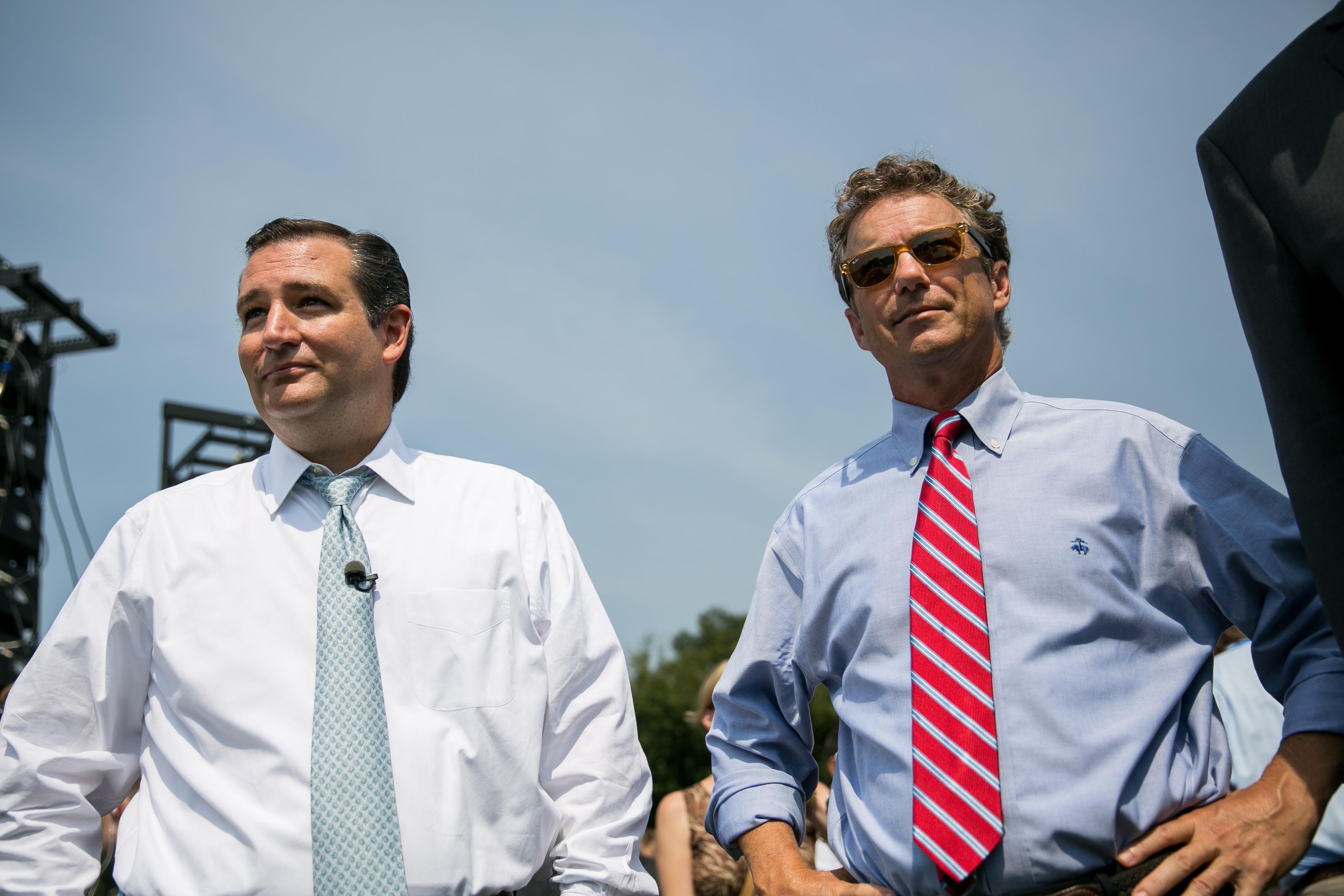The unofficial field of presidential hopefuls has grown so large that party leaders are already scrambling to figure out how they’ll manage to fit them all on a debate stage later this year. The official crop, though, stands at a relatively scant six: Ted Cruz, Rand Paul, Marco Rubio, Mike Huckabee, Ben Carson, and Carly Fiorina.
The dichotomy of who is officially in the race and who’s technically still on the sidelines raises an interesting question: Why do some candidates jump in the race early, while others slow-play their hands for as long as possible? The answer, unsurprisingly, has a heck of lot to do with money and how politicians go about raising it.
As long as a candidate isn’t officially a candidate, he or she can directly ask donors for unlimited amounts of super-PAC cash. That’s why top-tier candidates like Jeb Bush and Scott Walker are continuing to carry out their I-haven’t-made-up-my-mind charades, even as they act like someone running for president in every other tangible way. That massive fundraising loophole, however, isn’t actually open to everyone currently dreaming of the White House, as CNN’s Dana Bash explained Monday:
Legally, a federal office holder — such as a senator — is always a candidate for federal office, and therefore already bound by federal fundraising limits in a presidential run: $5,400 per maximum per donor, for the primary and general election combined. Super PACs that support them can raise money to use on their behalf, but they cannot coordinate in the same way Bush, [Chris] Christie and Walker are.
Since a current senator can’t directly fundraise for, or coordinate with, his affiliated super PAC, he might as well jump in early and capitalize on the buzz created by being among the first actors on stage. That’s a major reason why the first three Republicans to officially declare were sitting senators—Cruz, Paul, and Rubio—and why the only other senator expected to run for president—Lindsey Graham—is expected to join them soon. (These men can still appear at super PAC events, they just can’t be the ones directly asking for the five-, six-, and seven-figure checks. That may sound like a distinction without any difference, but the amount of ego stroking required by top donors probably can’t be overstated.)
There are other factors that dictate when a candidate makes a formal announcement, but the ability to circumvent FEC law is clearly a big one. Of the ten Republicans currently polling the best nationally, the only two who gave up all of their super PAC powers by declaring are Huckabee, who’s never been a fundraising powerhouse, and Carson, a relative unknown desperate for all the media attention he can get. Meanwhile, all five not-officially-a-candidate candidates sitting in the top ten—Bush, Walker, Christie, Rick Perry and Rick Santorum—are free to continue to rake in unlimited cash. Given that, they have little reason to formally enter the race for now—and millions of reasons not to.
